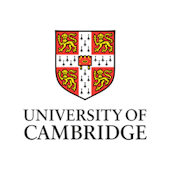Matthew Collins is a British biomolecular archaeologist based in Copenhagen and Cambridge whose research focuses on palaeoproteomics, an area that explores the study of ancient proteins to understand the past. He is notable for his commitment to interdisciplinary research founding BioArCh at the University of York in 2003 and his support for the development of early career researchers (over 20 PhD students and over a dozen postdocs), his championing of open access data sharing, and his boundless energy and creativity for nurturing new ideas with profound impacts on the field.
Collins was born in London in 1960. He studied Marine Zoology at UCNW and then went on to do a PhD in Geology at the University of Glasgow. After completing his PhD, he worked as a postdoctoral researcher at the University of Leiden. In 1999, he was appointed to a lectureship in Environmental Geochemistry at the University of Newcastle, moving to York in 2003 to establish BioArch York, where in 2010 he was promoted to a professorship. In 2016 he was appointed at the University of Copenhagen, Niels Bohr Professor, a 50% post, and this was complemented in 2018 by a McDonald Chair in Palaeoproteomics at the University of Cambridge.
Collins' work focuses on the survival and detection of proteins in ancient samples, a field that significantly contributes to our understanding of past civilizations, evolution, and environmental changes. His approach to research is innovative and interdisciplinary, blending elements of modelling, immunology, and protein mass spectrometry. This amalgamation of techniques allows Collins and his team to interpret protein remnants in archaeological and fossil remains.
One significant innovation (with postdoc Sarah Fiddyment) is the use of electrostatic extraction to recover protein from Medieval manuscripts. This enables exploration of ancient parchment production, geographical patterning of species utilisation, and the role of exotic species products in the bindings. Another is (with former PhD student, Mike Buckley) the development of ZooMS (Zooarchaeology by Mass Spectrometry). This technique allows the rapid identification of bone and other collagen-based materials using peptide mass fingerprinting, a significant advancement in the field of archaeology. His work on the use of closed systems for assessing the extent of protein degradation (with former PhD Student Kirsty Penkman) held to reestablish the reputation of amino acid geochronology. Obsessed by diagenesis, other work, such as development of a thermal age tool to predict DNA survival
In 2022 Collins received the Pomerance Award for Scientific Contributions to Archaeology. From the Archaeological Institute of America . Collins was elected to the British Academy in 2014, the Royal Danish Academy of Sciences and Letters in 2021 and the Royal Swedish Academy Of Sciences in 2022.
Experience
-
–presentProfessor of Palaeoproteomics, University of Cambridge
Education
-
1996University of Glasgow, PhD Geology
- Cambridge, UK
- Website
- @mc80york
- Article Feed
- ORCID
- Joined


